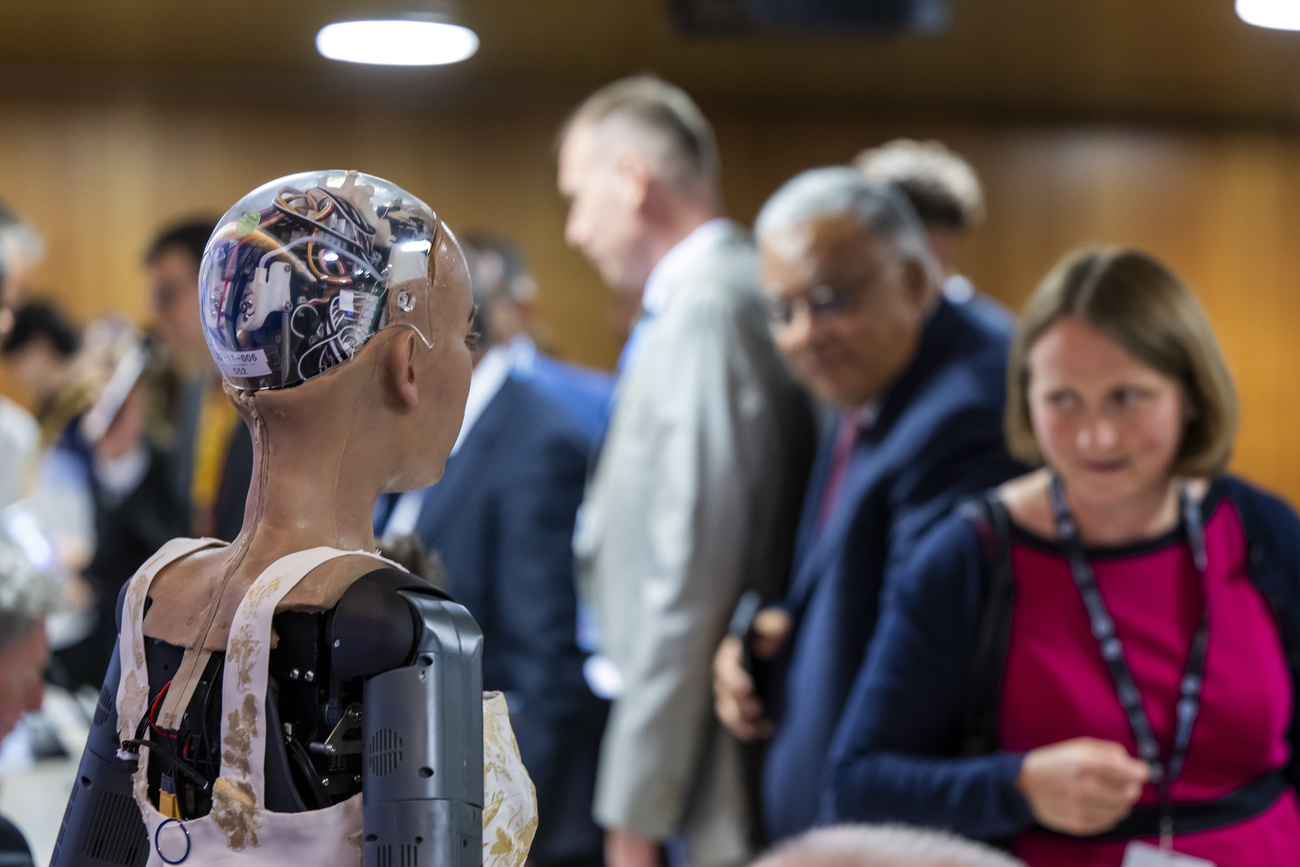
‘Swiss companies have taken on a pioneering role in artificial intelligence’

Swiss companies have taken on a pioneering role in new technologies such as artificial intelligence (AI), according to Catrin Hinkel, CEO of Microsoft Switzerland. “Switzerland holds a crucial position for the US company,” said Hinkel in an interview talking about the impact of the new European AI regulation.
Microsoft has been providing its AI assistant Copilot to Swiss customers, since November, with over 200 companies and start-ups using Microsoft AI solutions, said Hinkel in an interview with Swiss newspaper NZZ am Sonntag published on Sunday.

More
‘Artificial intelligence is the defining technology of our time’
The technology is employed for various purposes, such as generating meeting minutes. However, Hinkel could not specify when Copilot would be accessible for private customers.
It is still premature to estimate the impact of the European Union’s (EU) new AI regulation on Microsoft’s offering. “In principle, we welcome the EU’s regulation of AI,” said Hinkel.
Human responsibility
Negotiators from the European Parliament and EU member states reached an agreement on a corresponding law in early December. According to the EU Parliament, this marks the world’s first AI law.

More
Has Switzerland missed the train on AI regulation?
While the European Parliament and member states still need to give their approval, which is seen as a formality, the project entails categorising AI systems into different risk groups. The idea is that the higher the potential risks of an application, the more stringent the requirements should be. There’s hope that these regulations will serve as a global model.
According to the country manager at Microsoft, humans are the ultimate decision-makers and, therefore, bear the responsibility. This is why the technology is named Copilot. “The human is the pilot and, therefore, responsible for the aircraft,” explained Hinkel.
This news story has been written and carefully fact-checked by an external editorial team. At SWI swissinfo.ch we select the most relevant news for an international audience and use automatic translation tools such as DeepL to translate it into English. Providing you with automatically translated news gives us the time to write more in-depth articles. You can find them here.
If you want to know more about how we work, have a look here, and if you have feedback on this news story please write to english@swissinfo.ch.

In compliance with the JTI standards
More: SWI swissinfo.ch certified by the Journalism Trust Initiative




























You can find an overview of ongoing debates with our journalists here . Please join us!
If you want to start a conversation about a topic raised in this article or want to report factual errors, email us at english@swissinfo.ch.